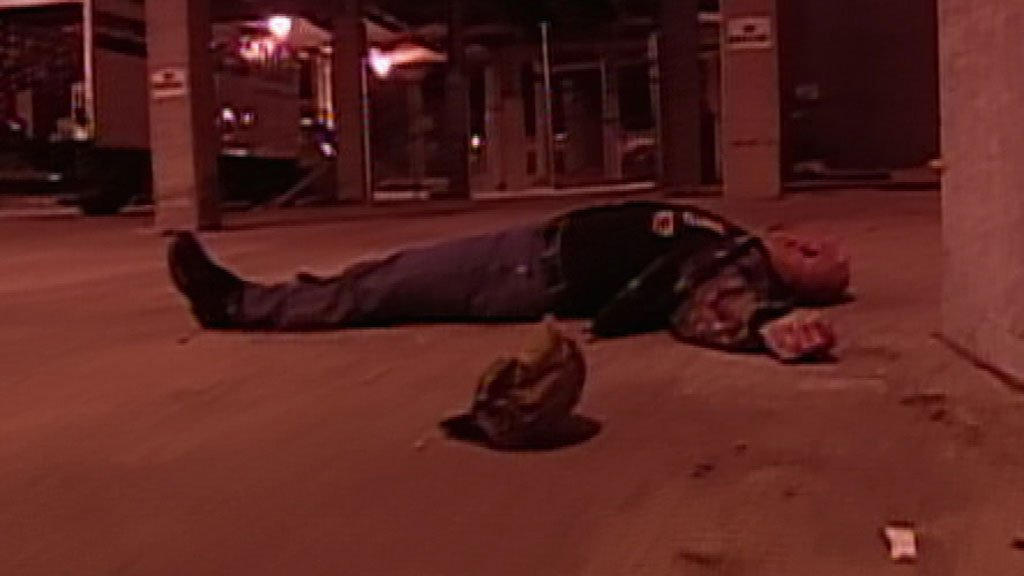Rikishi, Austin, and Jey Uso's Childhood Trauma: A Look at the Wrestling Family's Shared Struggles
Editor’s Note: This article delves into the shared childhood trauma experienced by WWE superstars Rikishi, his son Austin Theory, and his nephew Jey Uso, highlighting its impact on their lives and careers.
Why This Topic Matters
The world of professional wrestling often glamorizes strength and success, but the reality behind the spectacle frequently involves deep-seated personal struggles. Understanding the childhood trauma of prominent figures like Rikishi, Austin Theory, and Jey Uso sheds light on the human side of wrestling and the resilience it takes to overcome adversity. This article explores the shared experiences of this wrestling dynasty, examining how their past has shaped their present and the ongoing conversations surrounding mental health in the world of sports entertainment.
Key Takeaways
| Takeaway | Description |
|---|---|
| Shared Family Trauma | Rikishi, Austin Theory, and Jey Uso share a complex family history marked by significant hardship and loss. |
| Impact on Wrestling Careers | Their past experiences have profoundly influenced their in-ring personas and personal choices. |
| Resilience and Overcoming Adversity | The article highlights their strength and determination in navigating difficult circumstances. |
| Importance of Mental Health Awareness | It emphasizes the significance of open conversations surrounding mental health in professional wrestling. |
Rikishi, Austin Theory, and Jey Uso: A Legacy Forged in Hardship
The Anoa'i family, a dynasty in professional wrestling, is known for its incredible athleticism and captivating performances. However, beneath the glittering lights of the arena lies a shared history of hardship and loss that has profoundly shaped the lives of three prominent members: Rikishi, his son Austin Theory, and his nephew Jey Uso. While specifics remain largely private, public accounts and interviews offer glimpses into a complex family history marked by poverty, familial instability, and the tragic loss of loved ones. This shared trauma has undoubtedly influenced their individual journeys and the paths they've chosen within the wrestling world.
The Weight of Expectations
Rikishi, a legendary figure in his own right, carried the weight of expectations from a young age. Growing up within a family deeply embedded in the wrestling world, pressure to succeed was immense. This pressure, coupled with the challenges of his upbringing, likely contributed to the development of coping mechanisms that have been evident throughout his career. For Austin Theory, following in his father's footsteps presented both opportunity and considerable pressure, shaping his own wrestling persona and ambition. Jey Uso, navigating his own challenges within the family legacy, found solace and strength in the bond with his brother, Jimmy. The brothers' combined struggles underscore the generational impact of trauma.
Overcoming Adversity
The strength demonstrated by Rikishi, Austin Theory, and Jey Uso is undeniable. Their success in the face of adversity speaks volumes about their resilience and determination. While their individual stories remain largely untold, their public personas often reflect the inner strength they've cultivated in overcoming their past.
The Importance of Open Dialogue: Mental Health in Wrestling
The experiences of Rikishi, Austin Theory, and Jey Uso highlight the critical need for open and honest conversations about mental health within the world of professional wrestling. The demanding nature of the profession, coupled with the pressures of maintaining a public persona, can take a significant toll. Sharing their stories, even partially, helps break down the stigma often associated with mental health issues and encourages athletes to seek support.
People Also Ask (NLP-Friendly Answers)
Q1: What is the Anoa'i family's history of trauma?
A: The Anoa'i family has faced various hardships, including poverty, familial instability, and the loss of loved ones, impacting several generations.
Q2: How has this trauma affected Rikishi, Austin Theory, and Jey Uso?
A: It has profoundly shaped their lives, influencing their wrestling personas, career choices, and approaches to overcoming adversity.
Q3: Why is discussing this trauma important?
A: It promotes awareness of the mental health challenges faced by athletes and breaks the stigma surrounding seeking help.
Q4: What are the key takeaways from this article?
A: The article highlights the shared struggles, resilience, and the importance of mental health discussions within the wrestling community.
Q5: How can fans support wrestlers struggling with mental health?
A: By fostering a culture of empathy and understanding, promoting open conversations, and encouraging athletes to seek support.
Practical Tips for Understanding and Supporting Wrestlers' Mental Health
- Educate yourself: Learn about mental health conditions and their impact.
- Be empathetic: Show understanding and avoid judgment.
- Promote open conversations: Encourage athletes to talk about their struggles.
- Support mental health resources: Share information about available services.
- Advocate for change: Support initiatives promoting mental well-being in sports.
- Challenge the stigma: Speak out against negative stereotypes surrounding mental health.
- Celebrate resilience: Acknowledge athletes’ strength in overcoming adversity.
- Remember their humanity: Wrestlers are people facing real-life challenges.
Summary: The shared childhood trauma of Rikishi, Austin Theory, and Jey Uso offers a powerful reminder of the human element within the world of professional wrestling. Their stories underscore the importance of resilience, the need for open conversations about mental health, and the significance of supporting athletes in their journeys.
Closing Message: While the specifics of their shared experiences remain largely private, the impact of their collective past is undeniably significant. By acknowledging and discussing the challenges they've faced, we create a more supportive and understanding environment for athletes, encouraging them to seek help and fostering a culture of empathy within the wrestling community.
Call to Action: Share this article to raise awareness about mental health in professional wrestling and help break the stigma surrounding seeking support. Let's create a more compassionate and understanding environment for all athletes.

